How to take care of a pregnant woman everyday OR how to look after yourself when pregnant?
Pregnancy is the condition of the development of an embryo
or fetus in a women’s body after the union of ovum and spermatozoon.
It is the period of conception to that of
birth. In this state, a woman carries a fertilized egg inside her body.
Pregnancy lasts usually for about 40 weeks.
NINE-MONTH STAGES OF PREGNANCY:
First Month:
During the first month of pregnancy, the embryo is about
one-third of an inch long. There is the development of the head, beginning of arms
as well as legs in an embryo. In this stage, the fetus is about 1inch (i.e. 2.5
cm).
By the end of the first month, the liver and digestive system begin to
develop, and the heart of the baby starts beating.
Second Month:
In this stage, the the baby develops a complete cartilage skeleton which by the end of the month gets
replaced by bone cells. Also, the heart and nervous system of the baby begins
to develop.
Third Month:
In this month the baby grows and becomes about 4 inches. In
this stage, the major blood vessels and the roof of the mouth get developed
completely. Kidneys of the baby start functioning and the four chambers of the
heart are developed. Fingers and toes of
the baby start appearing.
Fourth Month:
In this stage, the
fetus begins to kick and swallow. The organs of the baby are fully formed in
this month. The baby can hear and urinate.
Fifth Month:
The baby inside the mother is about 8-12 inches. At this
month the mother can feel the heartbeat of the baby through a stethoscope. The
movement of a baby can also be felt.
Sixth Month:
The fetus is red,
wrinkly, and covered with fine hair all over its body. The fetus weight is
about 454-681 g respectively in this month. The growth of the fetus becomes
very fast this month.
Seventh Month:
In this stage, the
baby can open its eyes and can see the Mother’s watery womb. The fetus can suck
its thumb. The weight of the fetus becomes 1.3 kg this month.
Eighth Month:
The fetus may move in a head-down position as it
is mostly ready to get out of the womb by next month. The baby weighs about
1.8-2.3 kg and 16-18 inches long.
Ninth Month:
Now the fetus in the mother’s abdomen prepares itself for
the onset of labor. The time of delivery is between the 37th-42nd week. The
weight of a healthy baby is about 2.7-4
kg during birth.
SYMPTOMS OF
PREGNANCY:
healthy pregnancy symptoms are divided into three
trimesters:
Pregnancy care first
Trimester
The following are the symptoms of the first trimester:
1. Missing
of menstruation (Periods)
2. Swelling
in Women’s breasts
3. Enlargement
of Nipples
4.Vomiting
5.Nausea
6. Tired
7. Creamy
White discharge from the vagina
Second
Trimester (13-28 weeks):
The second Trimester includes symptoms such as:
1. Enlargement
of Uterus
2. Growing
Nipples large
3. Increased
Appetite
4. Increased
heart rate
Third
Trimester (29-40 weeks)
In Trimester three the symptoms are:
1. Stretch
marks (in abdomen, breasts, and thighs)
2. Kicks
from baby (may cause sharp pain)
3. Lower
backaches
Other
Symptoms:
Other symptoms may include:
- Constipation
- Hemorrhoids
- Heartburn
- Carve to
eat substances other than food - Chloasma
What to eat in pregnancy for fair and healthy baby?
During pregnancy, you should eat your entire favorite food
that is nutritious for you and your baby. Your food must include protein,
calcium, folate, iron, vitamins, and minerals.
Following is the description of the foods that are very
nutritious and are very beneficial during pregnancy:
1. Protein:
Protein is a must consume during Pregnancy. It helps in the proper growth and
development of the baby’s organs as well as tissues.
Pregnant women should consume about 70-100g of protein per
day.
Pregnant Women should eat Protein-rich foods such as:
- Chicken
- Salmon
- Nuts
- Peanut
butter - Cottage
Cheese - Beans
2. Calcium:
Calcium helps to build the bones and tissues of the baby strong. You should
consume 1000mg of calcium per day.
You should eat Calcium-rich foods such as:
- Milk
- Cheese
- Yogurt
- Green
Vegetables - Salmon,
Catfish etc.
3. Folate:
Folic acid should be consumed by pregnant women so as to avoid and prevent the
risks of birth defects as well as neural defects in the baby.
You should eat 600-800 mcg of Folic acid.
Folic acids rich foods include:
- Dried
beans - Nuts
- Eggs
- Leafy
vegetables - Liver
4. Iron:
Iron is an essential ingredient that should be taken by pregnant women.
You should eat 27 mg of iron each day.
Iron sources are:
- Citrus
fruits - Lean
beef - Eggs
- Leafy
vegetables - Cereals
You should eat nutrients which include Vitamin B. Drink at
least eight glasses of water every day.
WHEN TO SEE A DOCTOR?
You should see a doctor if you experience the following
symptoms:
- Bleeding
from vagina - Abdominal
pain - Leakage
of fluid from the vagina - No fetal
movement for 24 hours (after the fifth month) - Continuous
headaches - Swollen
eyelids - persistent
vomiting - Strong
Cramps - Fainting
- Shortness
of breath - Trouble
walking - Blurry
Vision
WHAT ARE THE EXERCISES THAT CAN BE PERFORMED?
You should do exercise if your pregnancy is progressing
normally.
Start doing simple exercises such as:
- Aerobic
Exercises (Brisk walk,swimming) - Cycling
(low impact aerobic exercise) - Running
(jogging) - Swimming
(increases heart rate) - Walking
- Yoga (good
for health and mind) - Pilates
(improve balance, strength, flexibility, and posture)
CAN PREGNANT WOMEN TRAVEL?
If you are a traveler and you wish to go out to visit your
favorite destination, you can go ahead with your planning. But you have to take
precautions while traveling. At the time of mid-pregnancy i.e.
between 14 to 28
weeks, you can travel as per your wish. At this time there are very less
chances of morning sickness as well as the risk of miscarriage. Though you
should, first discuss your travel plans with your doctor and then work on
them.
You should drink plenty of water
by whatever mode by which you are traveling to somewhere. If you are traveling
by car then you should ensure to wear seatbelts properly.
TRACK YOUR WEIGHT GAIN:
You should keep constantly in your mind that you are eating
for two. But on the other hand, you should neither eat too much nor less.
If you are not gaining weight then you might be at the risk
of having development problems with your baby.
You should visit your doctor frequently to make sure if you are gaining
perfect weight or not.
According to the recommendations of IOM, a pregnant woman
(one baby) is
- Underweight:
if weight gains 28-40 pounds - Normal
weight: if weight gains 25-35 pounds - Overweight:
if weight gains 15-25 pounds - Obese:
if weight gains 11-20 pounds
IS SEX SAFE DURING PREGNANCY?
There are many queries of pregnant women and their partners
that if they can have sex during this period. Sex in pregnancy is normal, do
not need to worry about that. Sex is generally considered safe in pregnancy.
For those women who are at risk for preterm labor,
abstinence should be recommended for them.
The resumption of intercourse postpartum should be dictated
by a woman’s level of comfort.
You should know that as the pregnancy progresses, there is a decrease in the achievement of orgasm and sexual satisfaction and an increase
in painful intercourse.
WHAT ALL TO AVOID DURING PREGNANCY?
The following are the thing you should avoid to do:
- Sea Food high in Mercury
- Undercooked
meat, poultry, and egg - Unpasteurized
food - Drinking
alcohol - Sitting
or standing for too long - Consuming
excess Caffeine - Unwashed
fruits and Vegetables - Exercise
at high altitudes - Smoking
So we understand how to take care of a pregnant woman
everyday now look (FAQ):
FREQUENTLY ASKED QUESTIONS ON PREGNANT CARE:+
Q1. Can I be
pregnant even after getting your Periods?
The answer to this question is simply no. You can never get
pregnant if you are getting your periods.
But if your vagina is bleeding doesn’t necessarily mean it’s
your period. You could be bleeding for some other reason. A lot of women
experience vaginal bleeding while they are pregnant.
2. So you
should confirm properly if you have missed periods and you are pregnant.
Q2. What are the early signs of Pregnancy?
The signs may differ in women. Some common signs include:
- Missed Period
- Tender, swollen breasts
- Nausea with or without vomiting
- Increased urination
- Fatigue

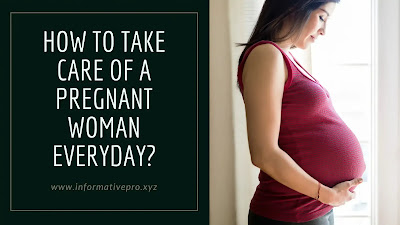
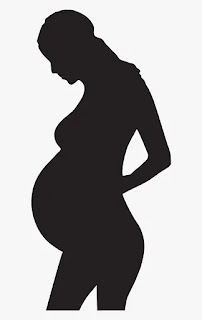
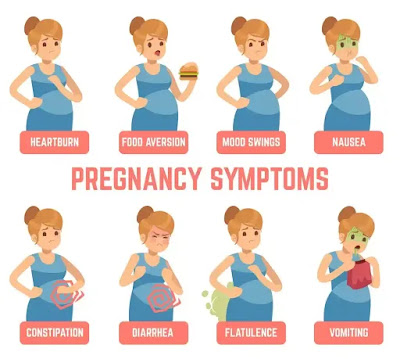
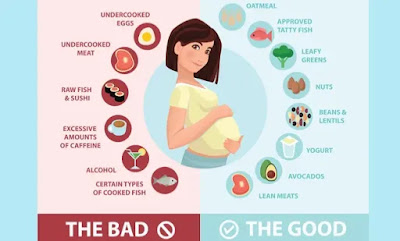


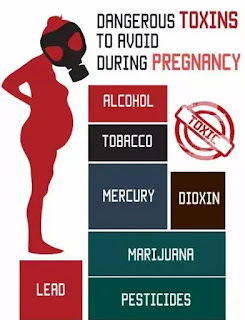
Leave a Reply